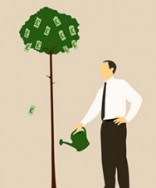
Its easy if you try If you live on the grid and want to reduce your energy consumption, there are plenty of simple ways of helping prevent the building of any more power stations. Here are some tips.
But first, if you want advice about the very best renewable energy set-up for your home, whether you are off-grid or connected to the grid, then we offer impartial advice in our home consultancy service (email: consult@off-grid.net).
Ask yourself every day: “How can I save electricity? How can I protect the environment? How can I leave the world a better place for my children?” And a different, but related question: “How can I save money in a recession?”
Don’t run more than one of the following appliances at the same time: washing machine, dishwasher, iron, lawnmower, kettle, microwave, kitchen mixer.
Switch off all appliances at the plug, including computers, TVs, etc, when they are not being used. If it is inconvenient to get to the plug, use an extension cord from the wall and plug the plug in the wall into the extension cord. You can then unplug it at any time.
Try to use a laptop instead of a PC. Laptops can save up to 95% of the electricity that PCs use.
If you use air-conditioning, don’t reduce the temperature to less than 20 degrees Celsius, and if it is a very hot day set the temperature to 10 degrees less than the outside temperature where possible. You will still feel the cool air and reduce your electricity bills.
Switch off your playstation when it is not in use; same with your DSTV decoder. Both draw almost as much power when they are on standby as when they are on, so if you only watch three hours of TV a day, you are wasting electricity for the other 21 hours.
These five items are easy to implement and will dramatically reduce the peak loads on power stations, thus potentially allowing our power stations to reduce their output if everyone gets involved.
Investigate getting a “load shed relay” so that when you switch on the oven or hob, the geyser heater switches off. It’s cheaper than buying a solar water heater.